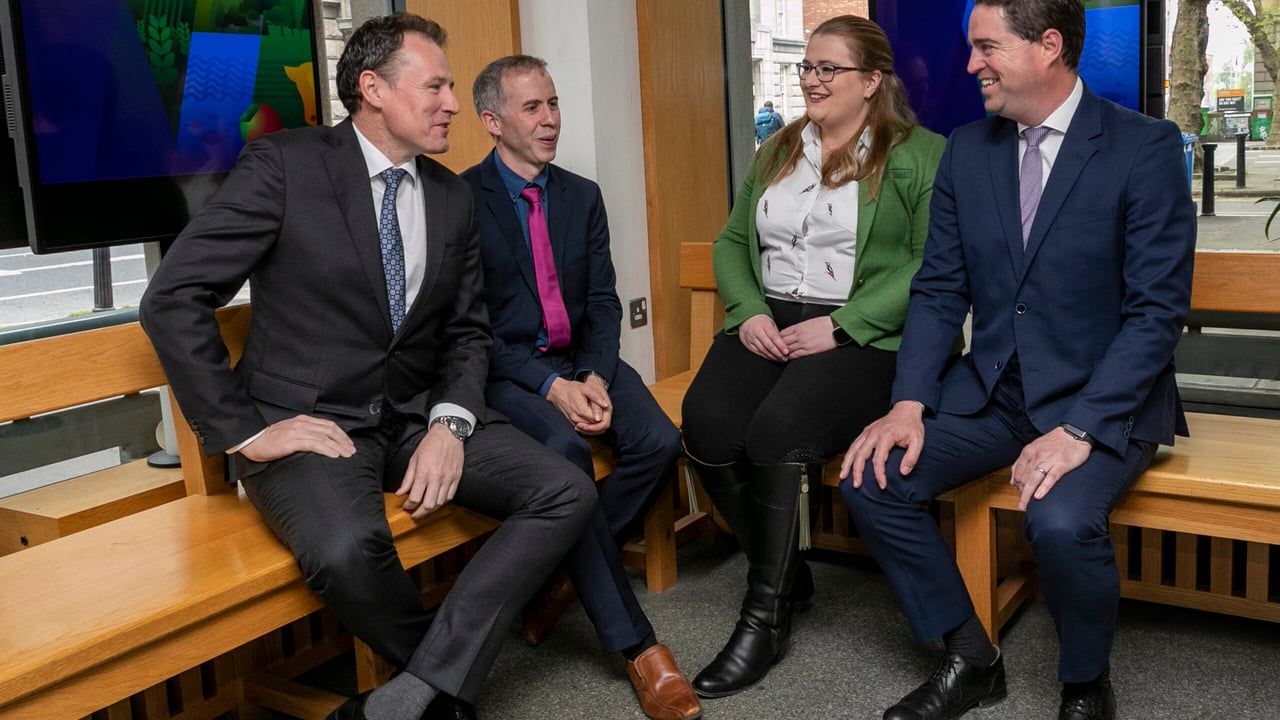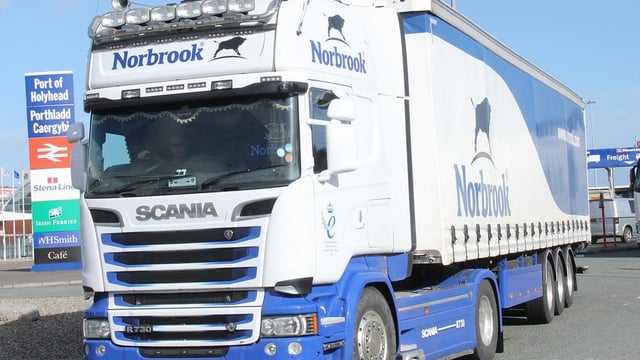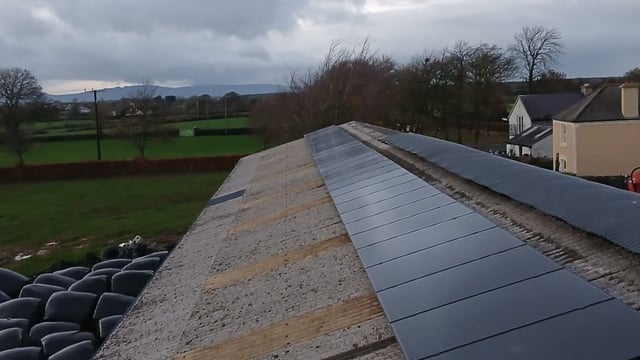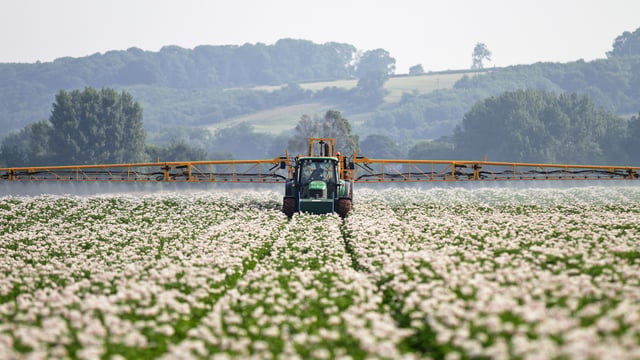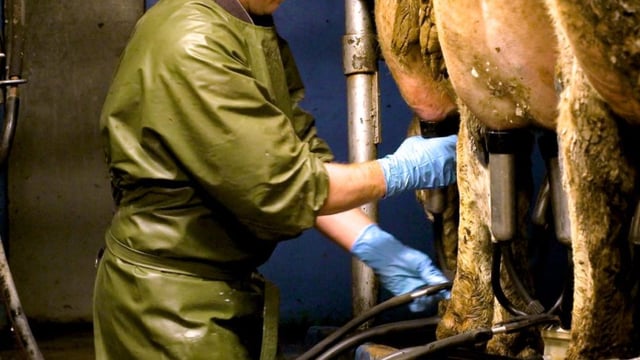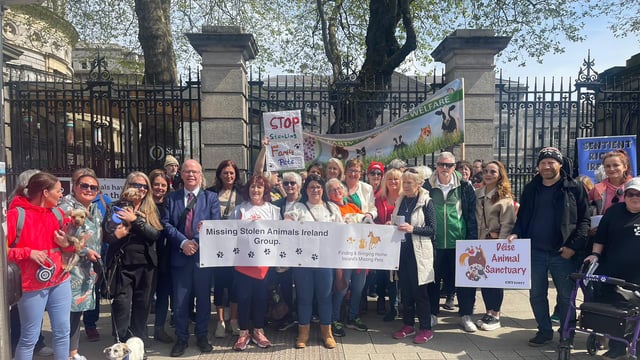Ministers announce scientific breakthrough on cattle emissions
Minister for Agriculture, Food and the Marine, Charlie McConalogue and Minister of State with special responsibility for research and innovation, Martin Heydon, have today (Thursday, May 4) announced a world-first scientific breakthrough that can enable the reduction of methane from the Irish cattle herd through animal genetics.
According to the Department of Agriculture, Food and the Marine (DAFM), this will be possible because of the publication of methane evaluations which will enable breeding programmes to reduce daily methane emissions in beef cattle.
The research to underpin this is a result of a €3 million project ‘GREENBREED’, funded by the DAFM.
Research project
The project has led to the publication of the world’s first national genomic evaluations for methane emissions in Irish beef cattle.
The research collaboration involved Teagasc, South East Technological University (SETU), Munster Technological University (MTU) and the Irish Cattle Breeding Federation (ICBF).
The project found:
- Large differences in daily methane emissions between animals fed the same diet, with 11% of these differences being traced to genetic differences;
- The 20% highest emitting animals genetically are expected to emit 30% more methane per day compared to the 20% lowest emitting animals.
The work indicates that breeding programmes to reduce methane emissions will be effective for selecting low-emitting livestock, especially when undertaken in tandem with the national genomic evaluations, such as the age at slaughter evaluations released in 2022.
Scientific breakthrough
Commenting on the scientific breakthrough, Minister McConalogue said: "I believe we are standing on the precipice of a major breakthrough that will be a game changer in our drive to reduce agricultural emissions.
"I am excited to make this announcement which is a tangible output from significant investment by the department’s research programme towards innovative and collaborative research into breeding strategies.
"Science is the 'ace up our sleeve' in reaching our climate targets and we are being strategic in our approach to backing credible and practical science," he added.
The minister added that the implementation of a low methane-emitting breeding programme has significant potential to harness the genetic variation for methane emissions that exists within the national herd.
"This, in turn, will bring about permanent and cumulative reductions in the methane output of future generations of livestock," McConalogue said.
"The results of the research also highlight the potential to breed more environmentally sustainable animals, while at the same time, not having a negative impact on the animal’s performance and profitability."
Meanwhile, Minister Heydon added: "The extensive, ground-breaking research conducted as part of the department-funded GREENBREED project represents a global-first for the Irish beef sector.
"It will help us to reduce methane emissions from beef cattle in a way that is both economically and environmentally sustainable.
"This announcement underlines the ambition and commitment of the department to fund research and innovation that provides tangible tools and technologies that can be deployed on farms.”
The coordinator of the GREENBREED project, Prof. Donagh Berry, said: Breeding strategies boast the advantages of being a technology that has already proven to deliver.
"The benefits will accumulate over time, delivering permanent changes to the entire national herd without additional costs to producers."
GREENBREED
- The GREENBREED project is investigating ‘Sustainable ruminant breeding programmes for low environmental footprint’;
- It was awarded funding of €3 million through the DAFM 2017 competitive national research call;
- Project is led by Prof. Donagh Berry, Teagasc which is the lead institution, and the collaborating institutions are SETU, MTU, and ICBF;
- The objective of GREENBREED is to develop, validate and deploy necessary tools and optimal strategies to achieve sustainable and quantifiable genetic gain in environmental and economic efficiency in dairy, beef and sheep;
- This new breeding tool provides an estimate of the expected methane emitted for individual animals, thus providing a mechanism to disregard high-emitting animals as parents of the next generation;
- This 'global-first' genomic evaluation for individual animal methane emissions in a multi-breed population of growing animals complements other breeding strategies developed, such as the carbon sub-index launched last November.

